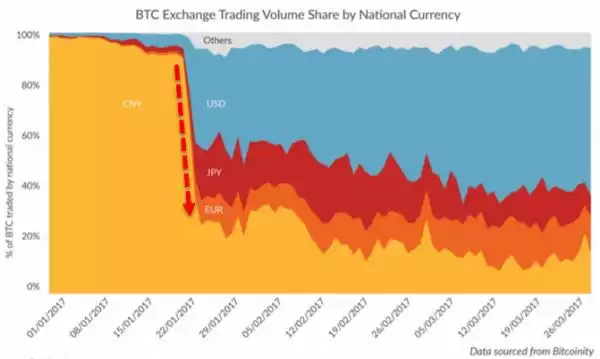$100b Bitcoin on its 9th Birthday
News
|
Posted 31/10/2017
|
6468
Bitcoin celebrates two milestones today. On this day 9 years ago its creator, the anonymous Satoshi Nakamoto, launched what he called Bitcoin, a “Peer-to-Peer Electronic Cash System”. Now 9 years later Bitcoin has just surpassed the $100b market capitalisation milestone and done so hitting all-time price highs, smashing through the US$6000 mark Sunday night, and up over 500% just this year to date.
However for us the $100b market cap figure is more alluring for how little it is, not how big. Sure, its rise has been meteoric of late, but as we point out is the case for both gold and silver as well, compared to the $300 trillion total global financial assets or $500 trillion total global assets, $100b is barely a blip. The number of active users, too, needs to be looked at in context. Of the 7.6b world population, it is estimated only 3.9m people have a bitcoin wallet with 0.01 bitcoins or more, that is 0.05% participation. Even reports of 15m total crypto wallets (across all currencies) in existence is 0.19% but many are lost, inactive or of very little value. When you consider we’ve seen +500% gains this year with such relatively low participation and noting you can’t simply increase supply, it begs the obvious question of what happens when demand doubles to just 0.1% of the world wanting it? Or even tenfold to just 0.5%??
For a little more context on this year’s rises lets also look at the challenges faced by the world’s largest crypto currency. In January this year China alone accounted for nearly all bitcoin trade as the Chinese piled in.

Then Japan legalised it as a currency the next surge came along, along with a return of the US and famously took bitcoin past the price of an ounce of gold. More recently we saw China’s government crack down on ICO’s (initial coins offerings of new alternative coins) and then domestic exchanges, seeing a 30% drop in the price. However since then the Chinese have moved to other means to continue trading and we’ve seen more recently moves by the big Chinese exchanges to more friendly jurisdictions in Asia, notably Japan and Hong Kong, but with Singapore and South Korea coming too. Japan’s regulators approved 11 new exchanges in September alone.
This week the RBA joined a chorus of concern about how government can control this peer to peer network. They are clearly worried about a growing awareness of an alternative to their fiat currencies and their slow, centralised and expensive banking network.
What bitcoin has proven this year, reaching its 9th birthday in spectacular fashion, is that it is resilient, exhibits intrinsic value by virtue of constrained supply, has a fast growing acceptance as a medium exchange (including buying bullion from us!), and on any helicopter view of it in the context of the financial market it plays in, appears to be still very much in its formative stages.